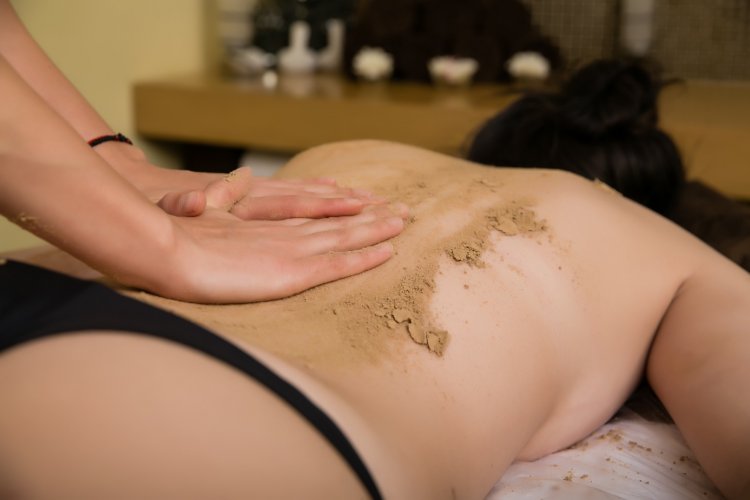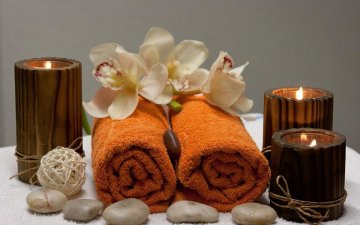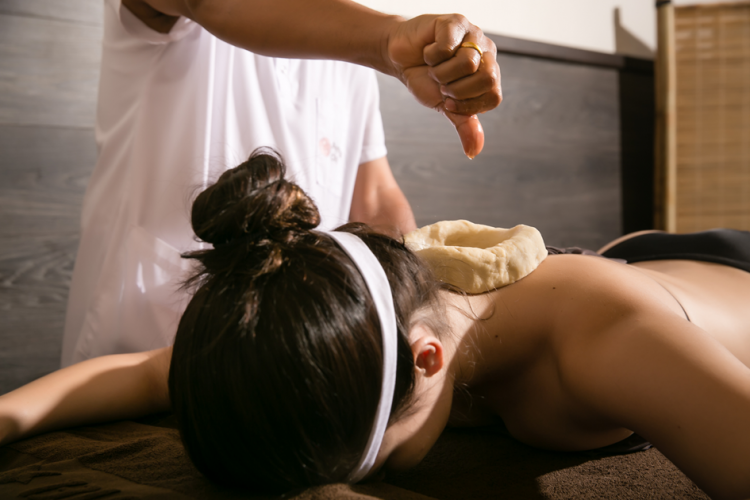What is Ayurveda?
For those of you who have not heard of Ayurveda, this is ancient Indian medicine of more than 5,000 years. It is actually one of the most ancient documented health systems that have effect on the whole body. The word Ayurveda directly translated from Sanskrit means “knowledge/science of life” from “ayur-life” and “veda-knowledge”.
The principles of this medicine state that human health is based on the delicate balance between body, soul and mind. Diseases appear when this balance is disturbed. According to Ayurveda, one must live in complete harmony with themselves and nature in order to be healthy.
Ayurvedic medicine originates from Vedic culture in India and was created first to increase the life expectancy of a person. Afterwards people started to use it for different purposes. Ayurveda followers believe that the human body is destined to live for 100 years. They believe in the three foundations of life that guarantee strong health and peace of mind: eating, sleep and self-improvement. That is to say, eat well, sleep well and spend time meditating and reflecting.
Due to its comprehensiveness, Ayurveda medicine is used to treat a variety of health problems. From a simple cough to cancer and Alzheimer’s, Ayurveda provides a cure for everything. It is believed that Chinese medicine originated from Ayurveda. The healing methods of Western medicine also borrow some healing techniques from Ayurvedic medicine.
One of the main things Ayurveda believes in medicine is that in order to cure a disease, we must remove the factors that contributed to this disease originally.
 What are the principles of Ayurveda?
What are the principles of Ayurveda?
Ayurveda’s main goal is to restore the lost balance in the body and strengthen its natural functions. Since Ayurveda is a medicine that believes in the power of nature, all its therapies and diet regimes include natural ingredients and food products. They can include herbs, minerals and metals.
However, if these therapies are not properly administered by experienced Ayurvedic specialists, they may have no effect and may even be dangerous because in some therapies for which metals are used, there is a risk of lead ingestion. Its medicinal products do not contain chemicals and do not have any side effects as opposed to alternative medicine.
However, in order for Ayurvedic therapies and Ayurvedic massages to be effective, all natural and authentic herbal oils and cosmetic products from India must be used. In addition, the procedures of this medicine should only be performed by certified doctors and therapists who have extensive experience in practicing Ayurveda procedures.
Ayurveda medicine is an individualized medicine because it treats each individual as a unique organism with its own needs and peculiarities. It opposes the belief of Western medicine that one drug can help everyone. There are no two identical constitutions. According to Ayurveda, everything is a medicine and everything is poison, that is to say, what can cure a person can have a pernicious effect on another since everyone has a different organism.
Ayurveda focuses entirely on the individual’s health. For this reason, and before the Ayurveda procedure is initiated, an Ayurvedic doctor examines the patient to determine their constitution and the current state of balance in their body.
Healing therapies and various Ayurvedic activities follow the natural body cycles. Ayurvedic therapies provide natural detoxification and our body is completely purified from all unnecessary toxins and poisons. Ayurveda detoxification treatments purify the blood, help the function of the liver and stimulate immunity.
 How is Ayurveda recovery achieved?
How is Ayurveda recovery achieved?
Ayurvedic medicine recommends to have our whole body cleansed periodically, for example, during the change of seasons – in spring and autumn. According to it, regular detoxification charges the body with energy, increases resistance, intensifies memory, increases self-esteem, and even increases life expectancy by stopping aging processes. Ayurveda believes that by purifying the body, we not only improve our health and appearance, but also bring more positive energy into our lives.
The body’s restoration according to Ayurveda includes the intake of water and fresh vegetable and fruit juices as well as fasting for a certain period. During the detoxification with juices, our body has the ability to recover in full because at that time the energy it normally delivers to the digestive system goes to the processes of healing, renewal and rebuilding. This detoxification mode recharges the body again with the lost valuable for its normal function trace elements.
The known Rasayana therapy, for example, has a regenerative effect on the whole organism. It is done in order to restore the vitality of the body. For best results, the procedure is done for 21 days (4-6 weeks) and the period may vary depending on our current condition.
It rejuvenates us and makes us energetic, improves the condition of the skin by giving it a healthy glow, improves the quality of sleep, helps memory and concentration and helps with the lack of appetite.
This therapy also helps with obesity and chronic stomach problems such as constipation, acts favorably in migraine. It improves the function of organs of perception such as smell, eyesight, hearing, taste receptors. Beside its strengthening effect on immunity, the therapy increases the body’s strength and acts soothingly on the mind.
According to Ayurveda, the post-illness recovery process is very important. We should not be forced to go back to our daily routine if we do not feel well. For example, when we recover from an illness or surgery, we must give our body the opportunity to recover fully. That means sleeping for at least 7-8 hours. It’s a good idea to try meditation or simply spend time in a relaxed setting and enjoy the moment.
Applying warm herbal oils to the skin during the recovery period regenerates its tissues and makes it soft, smooth and fresh. Abhyanga therapy, for example, is very beneficial for the skin. Ayurveda’s oil therapies give the lost valuable substances to the skin and make it healthy and brilliant again. Ayurvedic massages, on their part, relax the tension in the muscles and joints and relieve the stress.

Ayurvedic medicine, in addition to a variety of treatments and massages, includes a healthy diet according to the type of Dosha as well as yoga exercises and breathing techniques. Food and eating style take an important place in Ayurveda, as food is a direct way for us to connect with nature.
According to Ayurveda, it is good, for example, to start the day with a glass of warm water to purify the toxins in our body, also called ama. Ginger tea is recommended to stimulate digestion and metabolism. In this way we kick start our digestive system or the so-called digestive fire Agni.
Ayurveda protects the body from diseases and at the same time acts favorably on the symptoms of already emerging health problems. In addition to renewing our body and being a good prevention against a number of diseases, Ayurveda acts soothingly on the nervous system and helps both in physical as well as in psychological problems.
The principles of Ayurveda go beyond health care and disease prevention. Ayurveda teaches us how to achieve spiritual harmony. With the help of Ayurveda, we can find out our individual body constitution, learn about our exact health state, and learn how to live in harmony with ourselves and the nature.

 What are the principles of Ayurveda?
What are the principles of Ayurveda? How is Ayurveda recovery achieved?
How is Ayurveda recovery achieved?
0 Comments